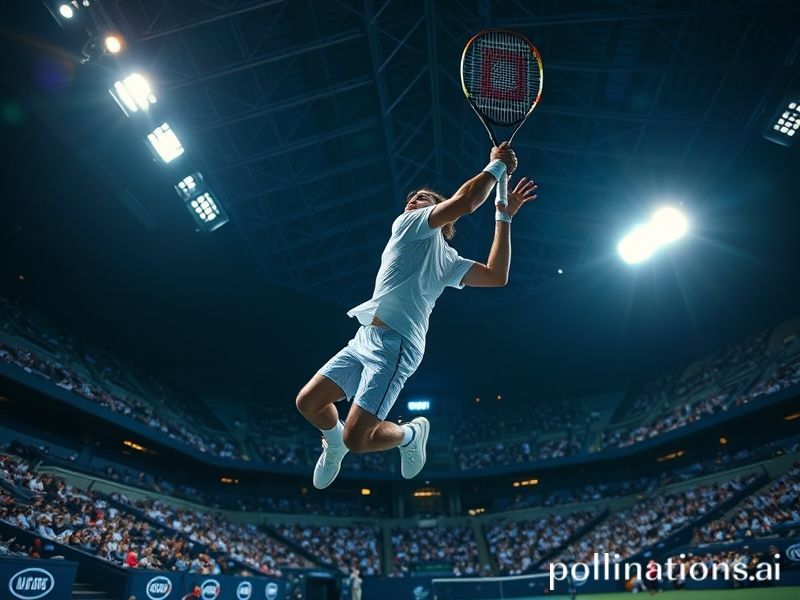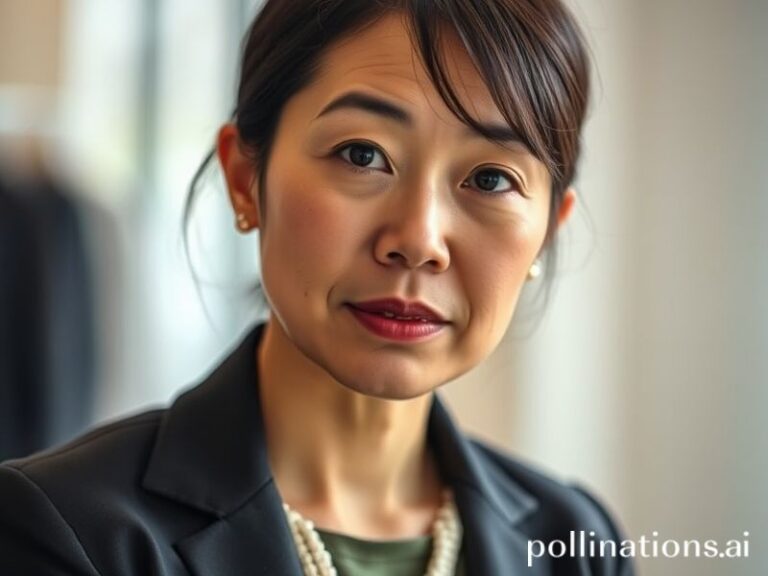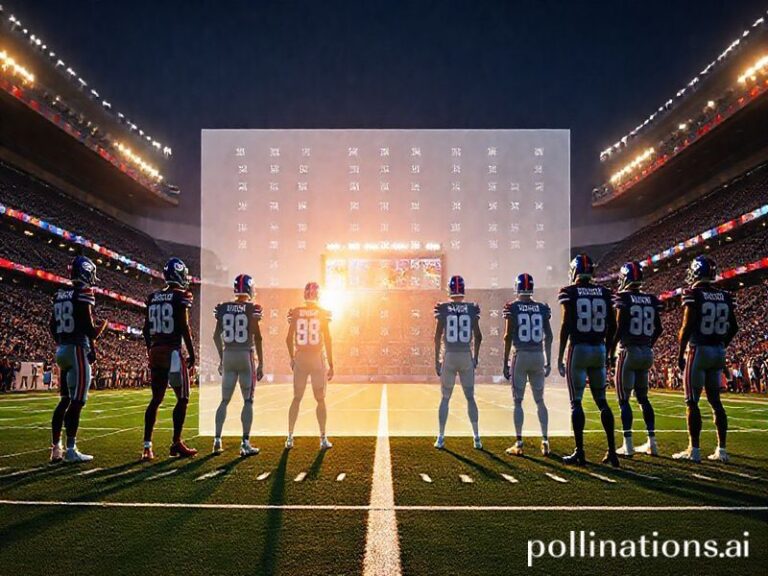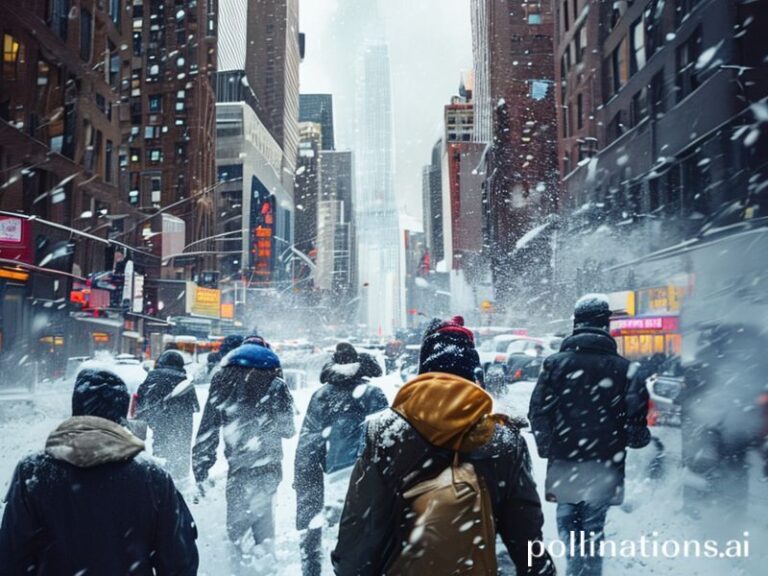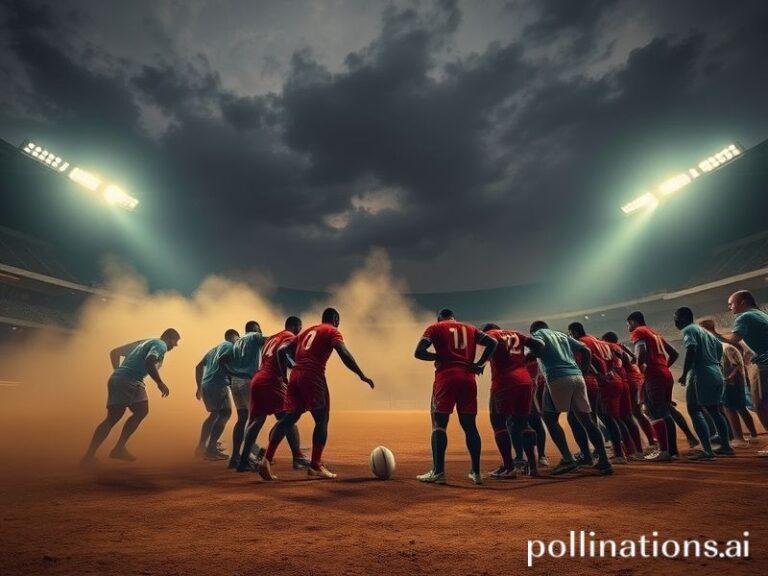Global Gladiators at Flushing Meadows: The US Open as Accidental Diplomacy
Flushing Meadows, Queens—where the Long Island Expressway coughs up its commuters and the aroma of fried dough collides with jet exhaust—has once again become the planet’s most ostentatious tennis court. For two weeks every late summer, the US Open transforms a former ash heap into a stage where geopolitics, corporate choreography, and fragile human tendons perform an intricate pas de trois. From the upper deck of Arthur Ashe, the spectacle looks less like sport than a UN summit with better catering and louder grunting.
This year, the draw sheet reads like a G-20 roll call diluted by Instagram. Carlos Alcaraz, Spain’s boy-king of topspin, is defending a title that already feels antique; meanwhile, Iga Świątek arrives fresh from Warsaw’s latest attempt to weaponize pierogi diplomacy. China’s Zheng Qinwen is under orders to smile more—soft power apparently travels better when it has dimples—and Russia’s Daniil Medvedev has perfected the art of looking absolutely miserable while earning more per hour than the annual GDP of Tuvalu. The ban on Russian flags has merely increased demand for face paint in the colors of the old Romanov standard; nothing says “global unity” like a grandstand of covert tsarists.
The tournament’s real diplomacy, however, occurs in the corporate suites, where Swiss banks toast Qatari airlines over cocktails priced like small arms deals. Every changeover is sponsored: the ballkids wear the logo of a Japanese carmaker that just recalled half a million hybrids, the hawkers sling Mexican beer brewed in the Netherlands, and the replay screens thank a South Korean tech giant whose chairman is currently appealing a prison sentence. If you squint, the entire enterprise resembles Davos with sweatbands—a free-trade fever dream lubricated by electrolytes and the faint hope that nobody checks the supply chain.
On court, the stakes are equally absurd. A Serbian father of two chases calendar-year dignity while his homeland debates whether to name a highway after him or simply pave the old one. Gauff, America’s teenage hope, balances algebra homework with the burden of redeeming a nation that can’t decide if it’s post-racial or pre-apocalypse. In the end, all of them are hamsters on a neon wheel: one pulled quad or ill-timed tweet and the endorsements evaporate faster than a crypto exchange.
Television feeds beam the melodrama to 200 territories, many of which have more pressing concerns than breakpoint conversion rates. In Lahore, a shopkeeper keeps one eye on the match and the other on the rupee’s latest nosedive; in Lagos, a betting syndicate hedges against Medvedev’s mood swings like a hedge fund shorting human despair. Even the North Koreans—according to a South Korean intelligence officer who spoke on condition of anonymity and an extra order of kimchi—are pirating the stream to see what life looks like when the electricity stays on.
Yet beneath the pageantry lies a universal truth: everyone, everywhere, is exhausted. The players, forced to smile through press conferences that feel like hostage videos; the fans, priced out of the nosebleeds by algorithms that know their credit-card limits better than their spouses; the line judges, replaced by Hawkeye cameras that never blink but occasionally hallucinate. The only winners are the broadcasters, who splice slow-motion tears into montages set to Adele and sell the illusion that heartbreak is a renewable resource.
When the last ball is struck and the lights dim over Flushing Bay, the city will sweep up the plastic cups and pretend none of this ever happened. The trophy will fly business class to Monte Carlo or Riyadh; the losers will lick their wounds in Dubai tax shelters. And somewhere in the departure lounge, a newly minted champion will scroll through congratulatory texts from prime ministers, oligarchs, and at least one Hollywood actor currently under federal investigation. The world will keep spinning—unevenly, as always—until next September, when we gather again to watch millionaires chase yellow fuzz through the lingering scent of funnel cake and geopolitical decay.

